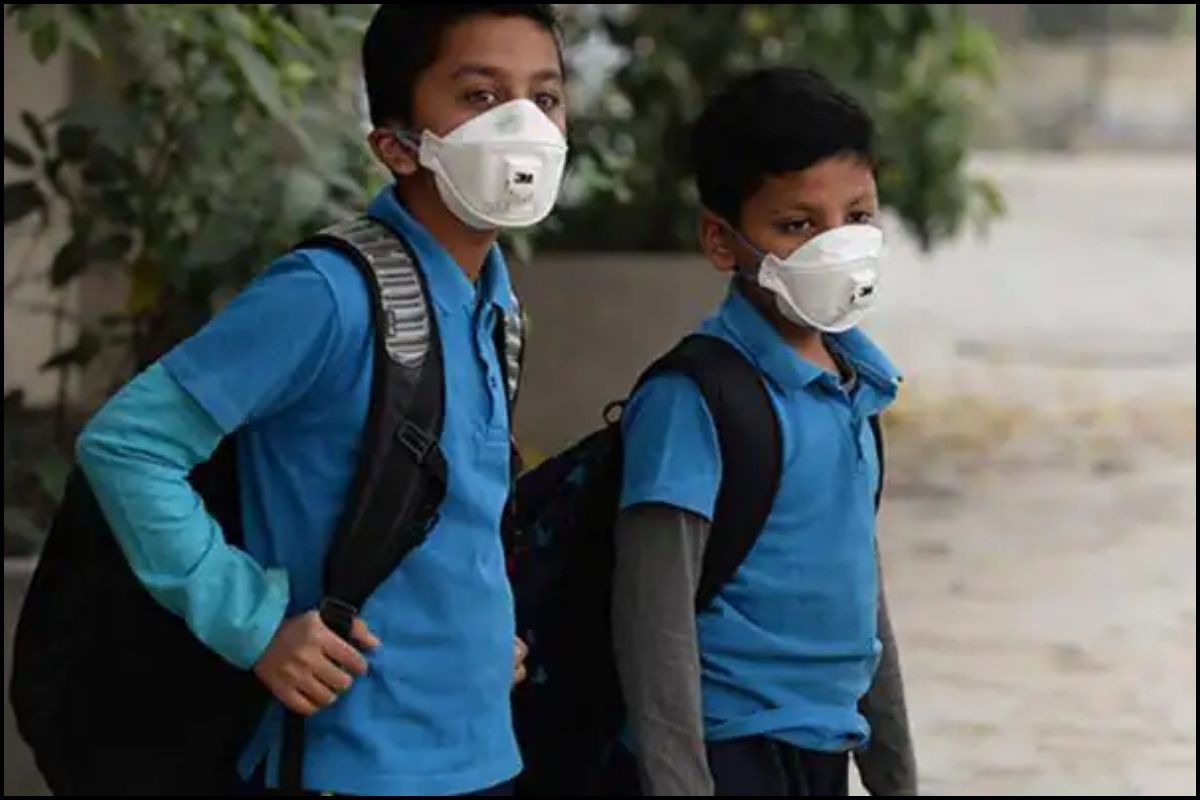The World Health Organization (WHO) said that children face a higher risk of suffering from air pollution-related diseases.
New Delhi: Amid rising pollution levels in Delhi-NCR, the World Health Organization (WHO) said children are more vulnerable to air pollution-related diseases. Apart from children, the elderly and pregnant women are also at increased risk of developing diseases due to exposure to toxic air.
“Children, elderly and pregnant women are more susceptible to air pollution related diseases. Genetics, comorbidities, nutrition and sociodemographic factors also affect an individual’s susceptibility to air pollution,” WHO said.
“Breathing in pollutants leads to inflammation, oxidative stress, immunosuppression and mutagenicity in cells throughout our body, affecting the lungs, heart, brain, among other organs, and ultimately leading to disease,” the WHO said.
Parents need to take some precautions to protect their child from air pollution. It is also essential that parents or guardians are fully informed about how to keep their child healthy and the health effects of air pollution.
Precautions to be taken to protect children
WHO has listed several precautionary measures to be taken to protect babies or toddlers from air pollution.
- Their lungs are still developing, and air pollution can interfere with this biological process
- Their bodies are less able to metabolize, detoxify and excrete the toxins contained in air pollution.
- Their brains are still developing, and neurotoxic compounds in air pollution can affect children’s cognitive development.
- They inhale more air per unit of body weight than adults
- They are more active and therefore breathe in more air pollution
- Babies born to women exposed to air pollution during pregnancy are more likely to be born prematurely and with low birth weight.
- Do not smoke in or near children, but make sure they are supervised
- Use cleaner fuels and technologies to cook, heat and light your home – choose electricity, natural gas, liquefied petroleum gas, biogas or a solar stove or oven
- Use ultra-low emission stoves with processed solid fuel (wood pellets) if cleaner alternatives are not available
- Always cook in a well-ventilated area or outdoors if your kitchen or cooking area is difficult to ventilate
- If possible, avoid using kerosene lamps or stoves for cooking or lighting
- Don’t burn candles or use air fresheners, which add toxic chemicals to the air
- Keep your children healthy – make sure they are up to date with their immunizations, eat a healthy diet and have plenty of opportunities to play and be physically active.
Important Note – Parents should monitor air pollution levels in the city they live in and be aware of the effects of air pollution on their children to know when and how to take protective measures.
